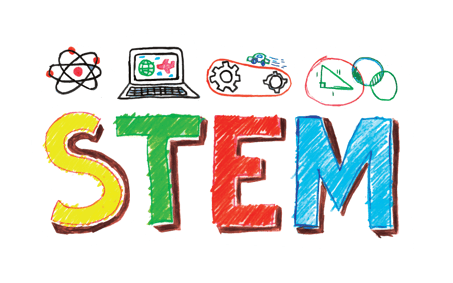Batter Links: Your Gateway to Trending News
Stay updated with the latest trends and insights from around the world.
STEMming the Tide: Why Every Student Needs a Little Science and Math
Discover how mastering science and math empowers students, fuels innovation, and shapes a brighter future. Dive into STEM today!
The Importance of STEM Education in Today's Workforce
STEM education (Science, Technology, Engineering, and Mathematics) has become increasingly crucial in today's workforce, serving as the backbone of innovation and economic growth. As industries evolve and technological advancements accelerate, the demand for STEM professionals is surging. According to recent studies, careers in STEM fields are projected to grow significantly faster than jobs in non-STEM sectors, illustrating the need for a workforce equipped with strong analytical and problem-solving skills. This trend emphasizes the importance of incorporating STEM education into curricula at all educational levels to prepare students for the challenges and opportunities of the modern job market.
Moreover, STEM education fosters essential skills that transcend traditional academic boundaries. In addition to technical knowledge, it encourages critical thinking, collaboration, and creativity—all of which are vital for success in today’s diverse workplaces. Companies across various sectors are actively seeking employees who can adapt to rapid changes and think innovatively. By prioritizing STEM education, we are not only nurturing future leaders in scientific and technical fields but also equipping all students with the tools necessary for lifelong learning and adaptability in an ever-evolving economy.

How STEM Skills Foster Problem-Solving and Critical Thinking
STEM skills—encompassing science, technology, engineering, and mathematics—are integral to fostering problem-solving and critical thinking abilities. By engaging in STEM-related activities, individuals learn to analyze complex situations, identify patterns, and devise innovative solutions. For instance, when students tackle a challenging engineering project, they must not only apply theoretical knowledge but also work collaboratively to troubleshoot issues as they arise, leading to a deeper understanding of the problem-solving process. This hands-on approach encourages a mindset where questions are welcomed, and iterative thinking becomes a norm.
Moreover, the critical thinking nurtured through STEM education equips learners with the tools necessary for evaluating information and making informed decisions. In STEM fields, individuals are often confronted with real-world challenges that require them to synthesize data and apply logic. By developing these skills, they become adept at considering various solutions and weighing their pros and cons, which enhances their ability to approach problems systematically. As they refine their analytical capabilities, they not only become more proficient in STEM but also gain invaluable skills that are applicable across all aspects of life.
What Parents Can Do to Encourage a Love for Science and Math in Kids
Encouraging a love for science and math in children can be a rewarding journey for parents. Start by integrating fun, hands-on activities that ignite curiosity. For example, experiments with simple household items can introduce basic scientific concepts while making learning enjoyable. Take trips to science museums or nature parks, where kids can explore and ask questions about the world around them. Additionally, incorporating games that involve math skills, such as board games or mobile apps, can help children develop a natural affinity for numbers in a playful way.
Moreover, it's essential to foster an environment where questions are encouraged. Create a science and math corner at home filled with books, puzzles, and kits that stimulate inquiry. When children show interest, take the time to engage with their questions and find answers together. Celebrate their achievements, no matter how small, and emphasize that making mistakes is an integral part of the learning process. By showing enthusiasm and support for their exploration, parents can cultivate a lifelong passion for science and math in their kids.